What’s included in our K–6 literacy assessment and instruction suite
mCLASS® provides every teacher, coach, and administrator with a data-driven system that supports each student’s unique needs—from efficient one-minute skills assessments in English and Spanish to granular diagnostic insights. You’ll have all of the tools you need to ensure your students receive effective instruction and discover their true skills as readers.
Learn more about mCLASS’s precise measurement, predictive results, and preventive instruction.
Request a walkthrough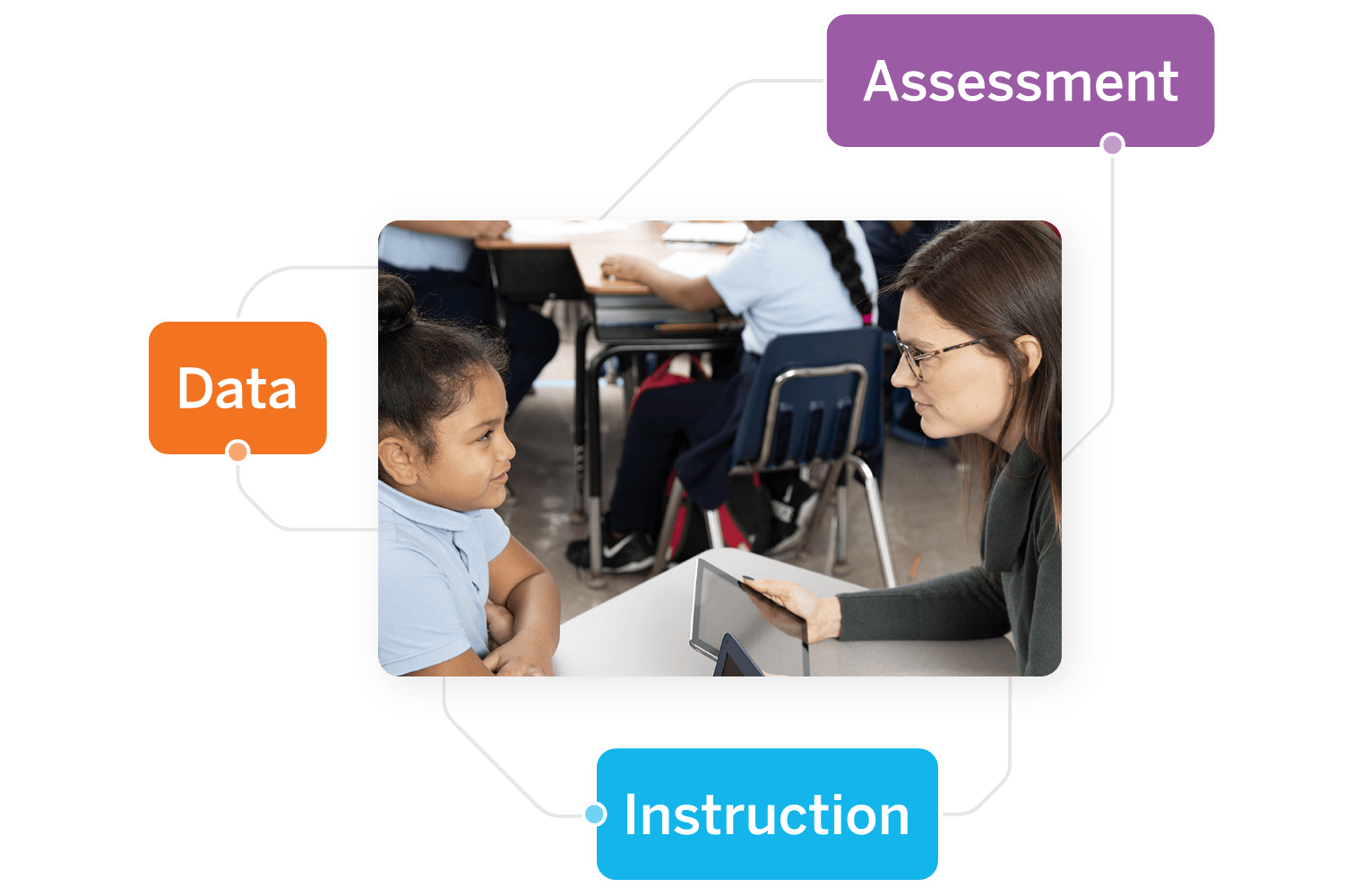
Skills at a glance
mCLASS includes benchmark, progress monitoring and dyslexia screening measures in English and Spanish that are predictive of long-term reading success and detect the critical early warning signs of dyslexia risk. Together, mCLASS DIBELSⓇ 8th Edition and mCLASS Lectura identify whether a student is at risk due to a stronger proficiency in one language or difficulties associated with dyslexia.
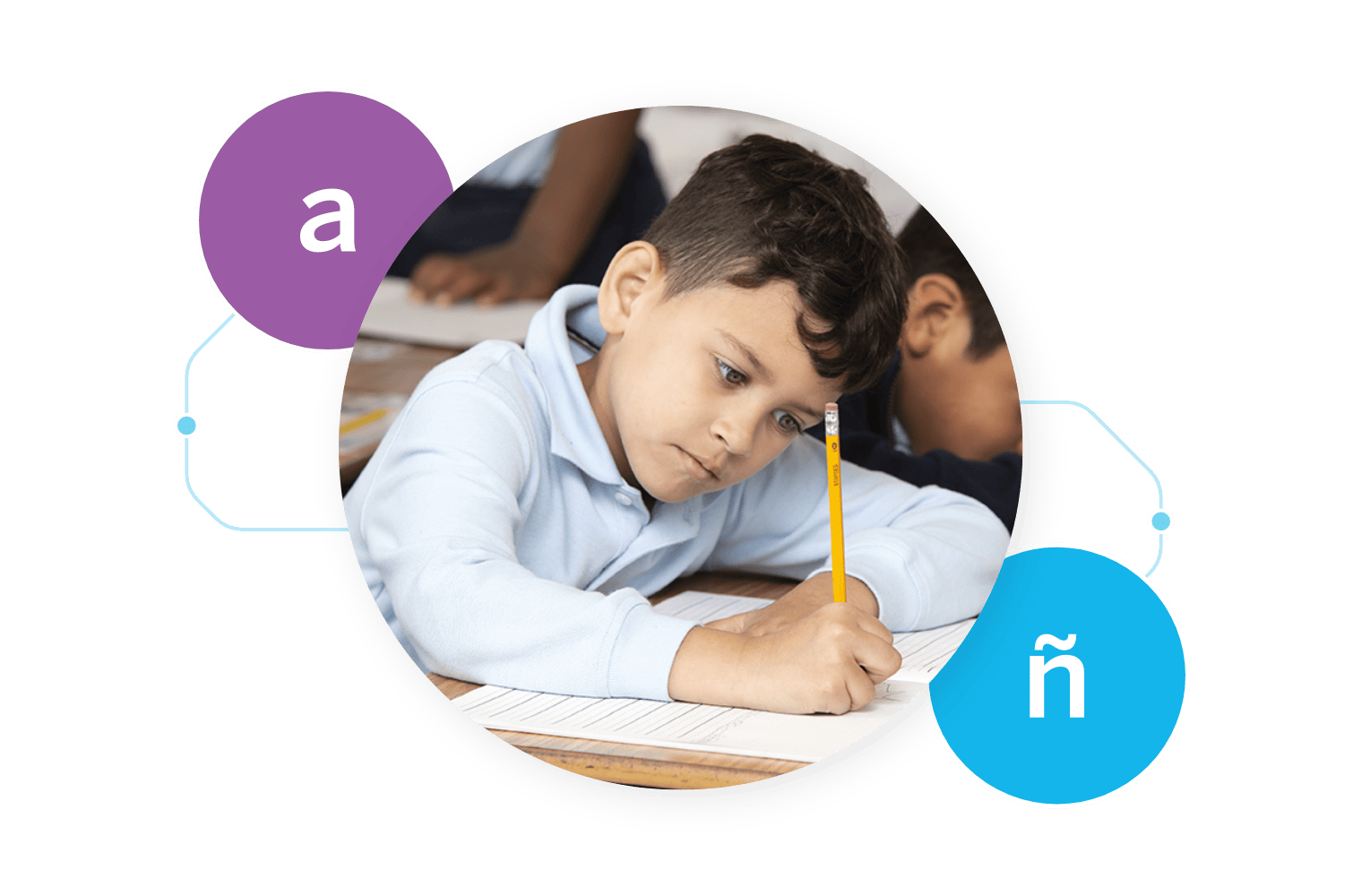
Equal skill coverage in English and Spanish
| Skill | mCLASS DIBELS 8 measure | mCLASS Lectura measure | Description |
| Letter names and rapid automatized naming (RAN)* | Letter Naming Fluency (LNF) | Fluidez in nombrar letras (FNL) | Grades K–1: Naming letters from print |
| Phonological awareness | Phonemic Segmentation Fluency (PSF) | Fluidez en la segmentación de sílabas (FSS) | Grades K–1: Hearing and using the smallest unit of sound in spoken words |
| Letter sound correspondence | Nonsense Word Fluency (NWF) | Fluidez en los sonidos de letras (FSL) | Grades K–3: Knowing the sounds of letters and sounding out written words |
| Word reading | Word-Reading Fluency (WRF) | Fluidez en las palabras (FEP) | Grades K–3: Reading common words easily, quickly and correctly |
| Accurate and fluent reading | Oral Reading Fluency (ORF) | Fluidez en la lectura oral (FLO) | Grades 1–6: Reading words in stories easily, quickly, and correctly |
| Reading comprehension | Maze | ¿Cuál palabra? (CP) | Grades 2–6: Understanding and gaining meaning from texts |
*Fluidez en nombrar letras (FNL) in Spanish and Letter Naming Fluency (LNF) in English are validated as phonological processing measures (also known as RAN), thus making RAN available in both languages.
Additional dyslexia screening measures
| English | Spanish | Description | Grade level |
| Vocabulary | Vocabulario | Knowledge of grade-specific words | K–3 |
| Encoding (Spelling) | Ortografia | Arranging letters correctly to spell a word | K–3 |
| RAN (Numbers) | – | Recognizing visual symbols, such as numbers, and naming them accurately and rapidly | K–3 |
| Oral Language | Lenguaje oral | Ability to use words and phrases acquired through conversations, reading and being read to, and responding to texts | K–5 |
Educator and caregiver reports
The rich data you collect through direct observation is instantly available from a variety of reports that simplify student growth analysis and instructional planning. All stakeholders, from teachers and administrators to parents and guardians, will gain a deep understanding of student performance and know how to provide extra practice. See the complete mCLASS Reporting Guide.

Class and student reports
Detailed class and student reports help you quickly pinpoint which students need more support. You’ll be able to see every student’s skill progression from the beginning of their literacy journey to later grades and know exactly when a change in instruction is needed. Measure transcripts from every benchmark and progress monitoring probe also provide you with insight into student responses during assessment.
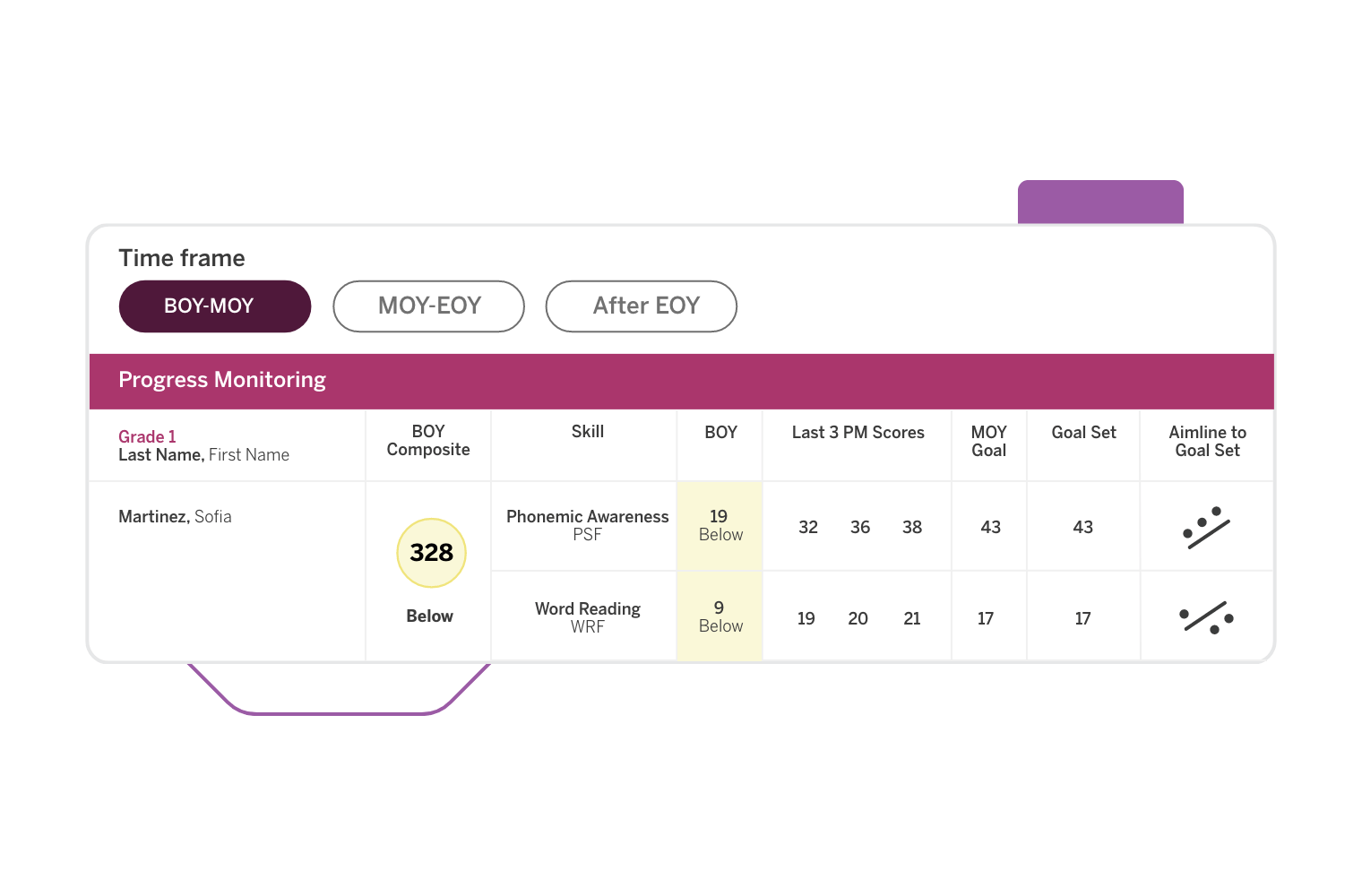
Goal setting
mCLASS includes tools for setting goals and evaluating growth outcomes to ensure the instruction you are providing each individual student is meeting their needs and accelerating their growth. The program uses each student’s initial performance to assign goals, which you can further customize as their learning progresses.
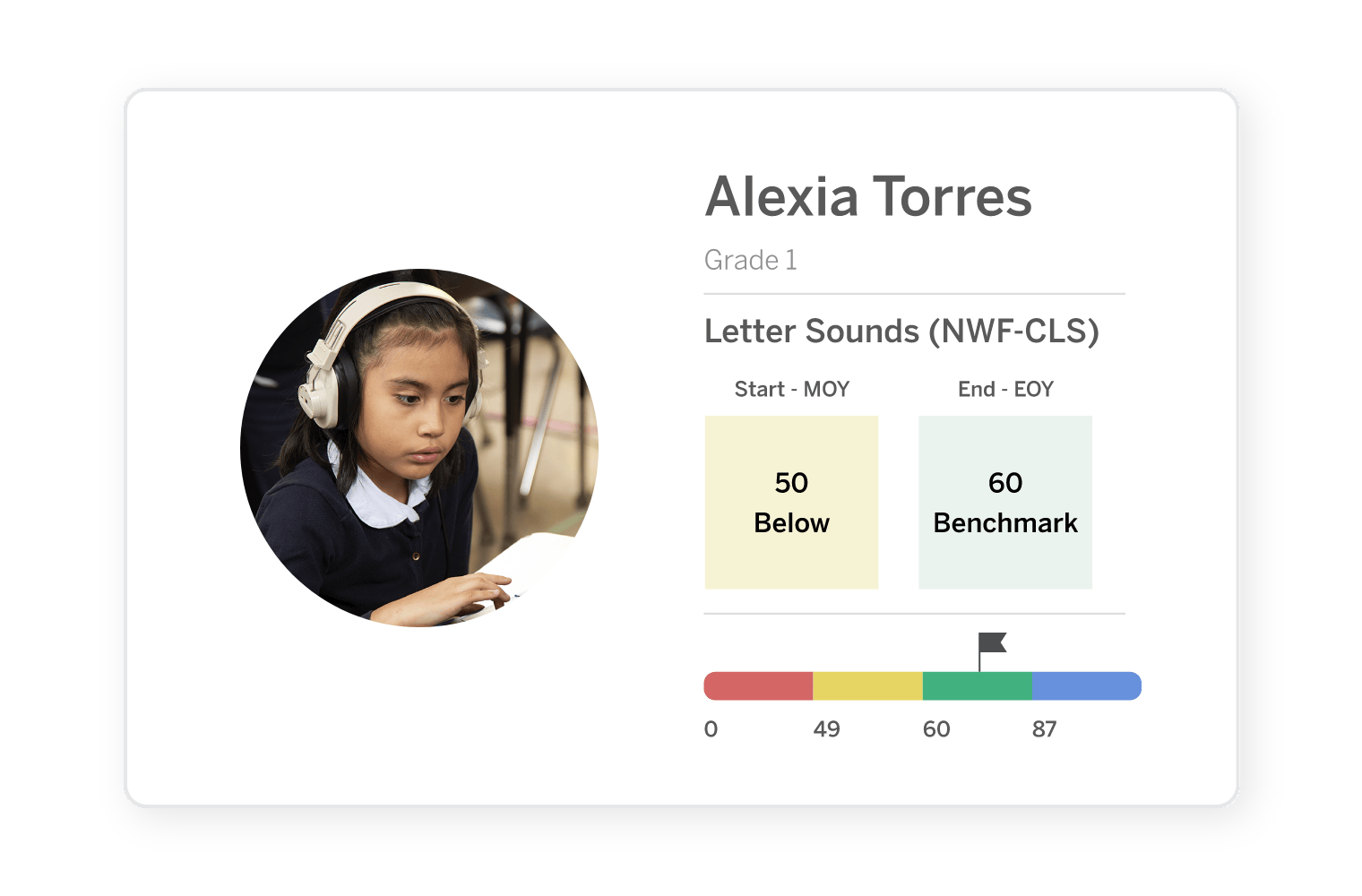
Administrator reports
The mCLASS reporting and analysis suite makes it possible to analyze performance trends across a variety of demographic categories at the class, school, district, and state level. Principals, administrators, and district leaders are empowered to evaluate the success of instructional strategies, allocate training resources, or decide where to deploy additional staff.
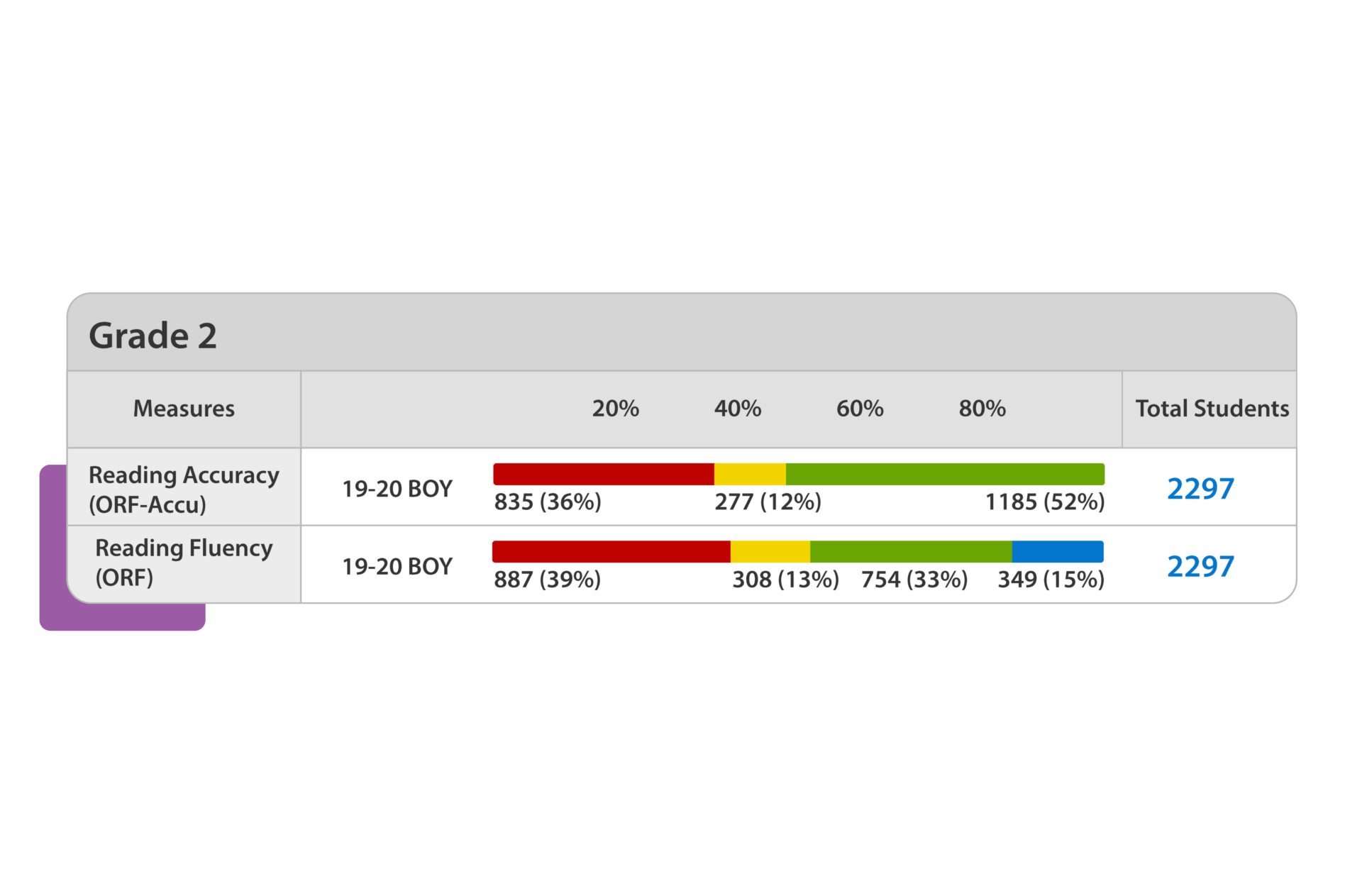
Caregiver reports
The Home Connect letter allows educators to share information about a child’s reading development with parents and guardians in simple charts and family-friendly language. The letters provided include instructional resources in print and online for families to help practice skills at home.
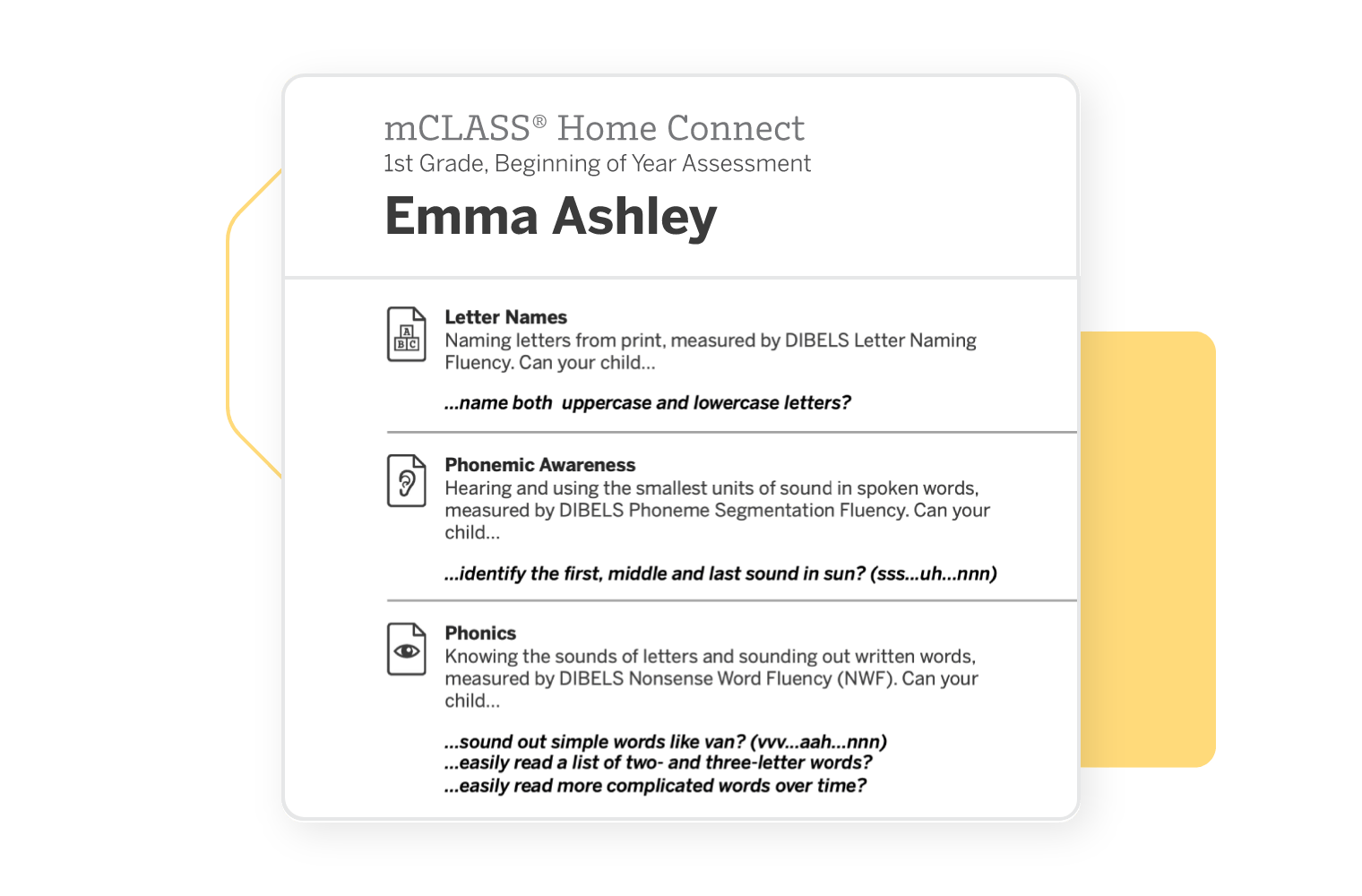
Data-driven instruction
mCLASS helps you make sense of data by instantly providing targeted instructional recommendations and teacher resources based on students’ assessment results. mCLASS data also informs instruction within Amplify’s suite of intervention, personalized learning, and core programs grounded in the Science of Reading.
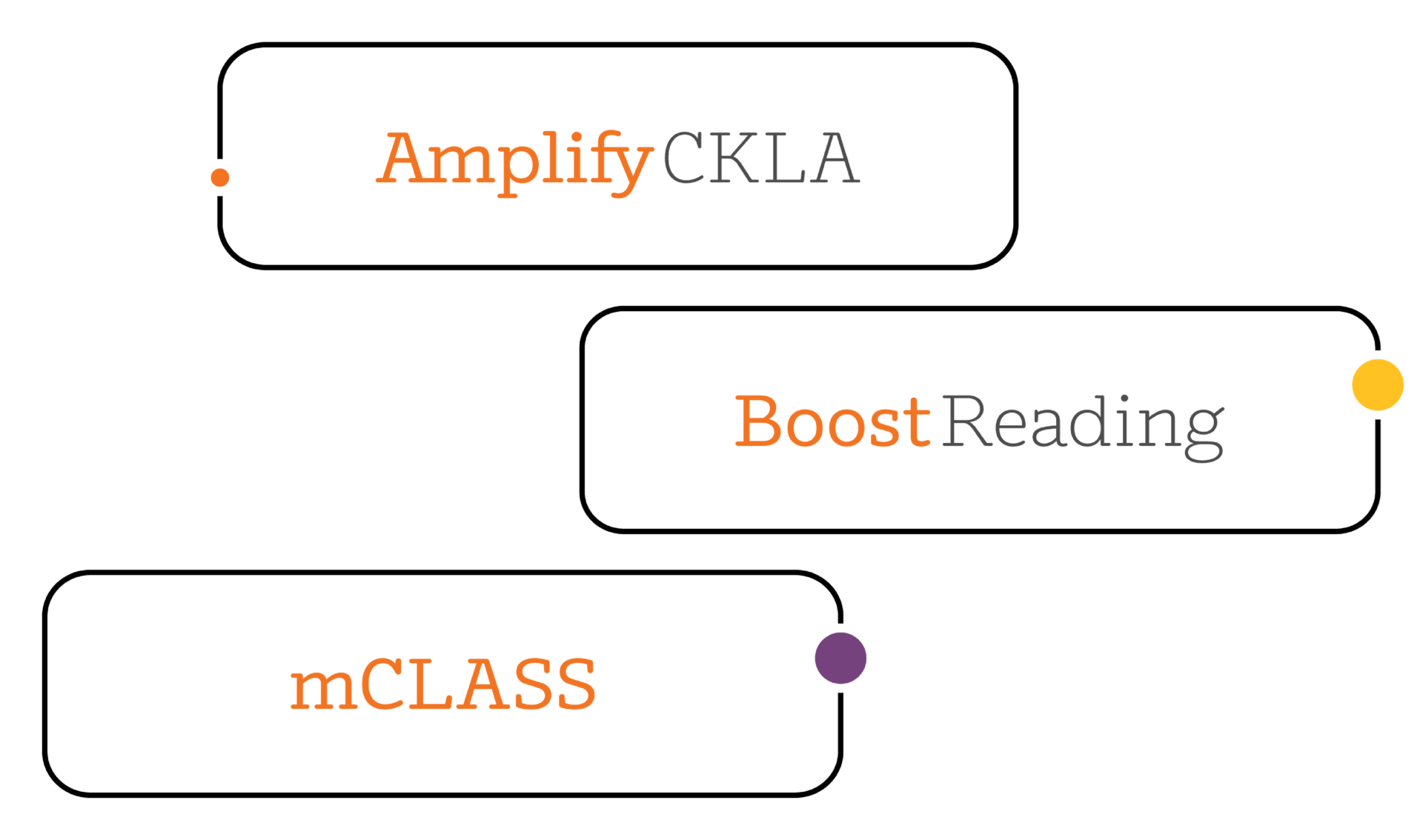
Automatic small-group and one-on-one instruction
The mCLASS Instruction feature included with DIBELS 8th Edition and mCLASS Lectura automatically generates skill profiles and recommends teacher-led activities for small groups and individual students. Recommendations can be updated based on the latest benchmark and progress monitoring results.
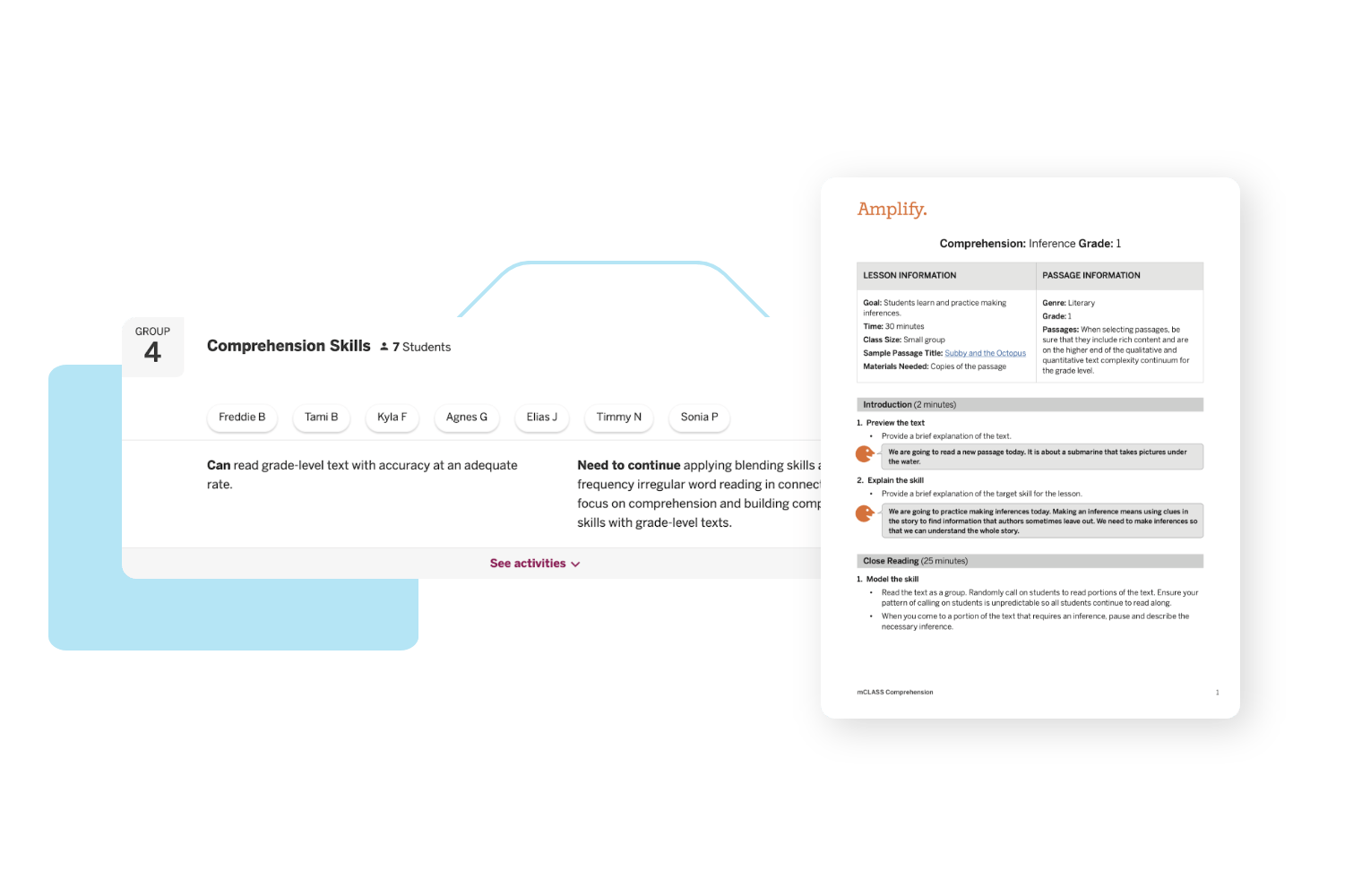
Tier 2 and 3 instruction with mCLASS Intervention
mCLASS data not only helps you identify which students are in need of intensive support, but also places them into Amplify’s Tier 2 and 3 instruction program, mCLASS Intervention. mCLASS Intervention builds a skill profile for each student, forms engaging lesson plans, and updates the instructional recommendations every ten days based on the latest benchmark and progress monitoring results.
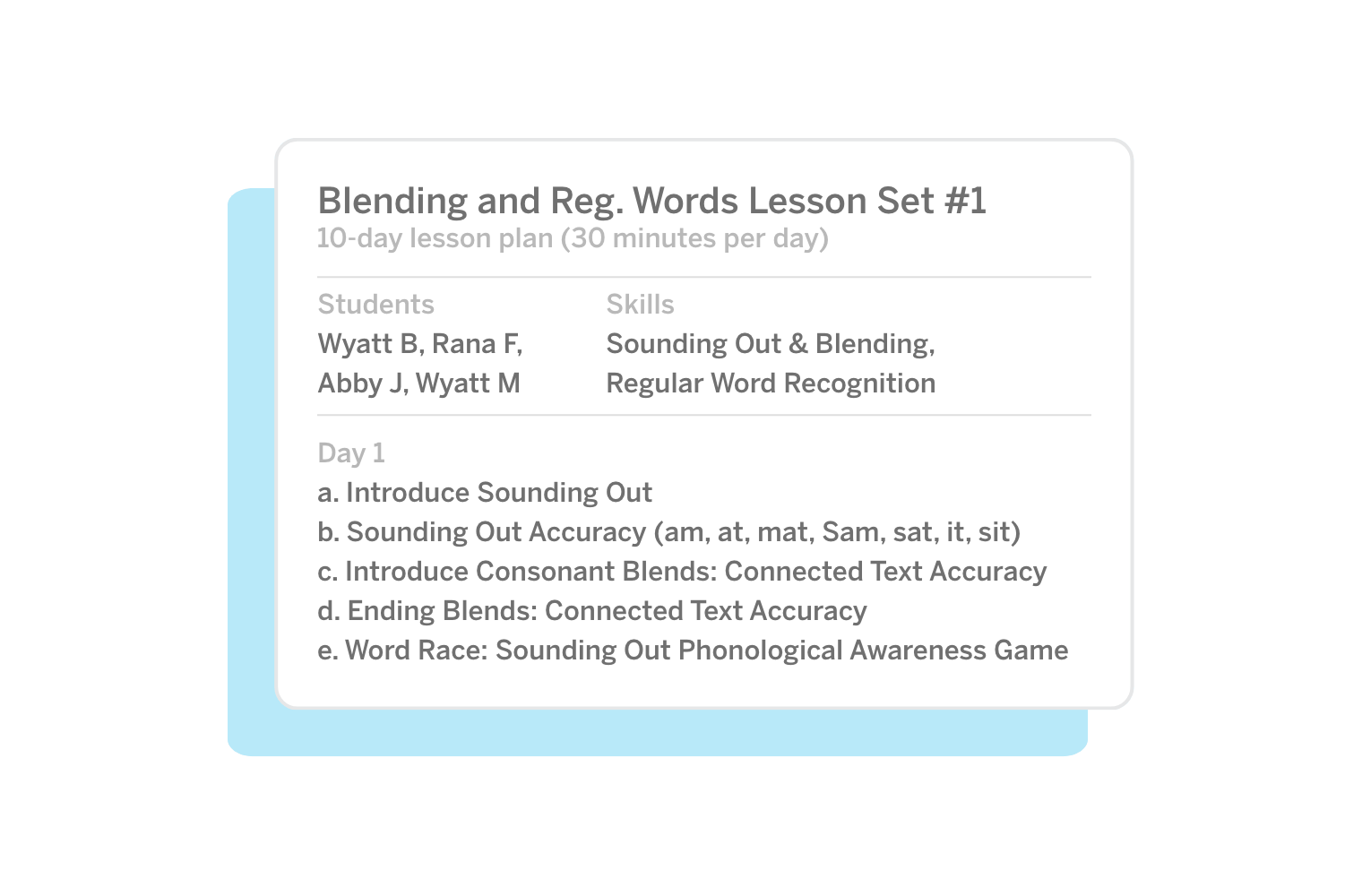
Core instruction with Amplify CKLA
By combining the results from mCLASS assessments with Amplify CKLA, you can provide targeted whole-class instruction specific to your students’ risk levels and areas of growth. The small-group instruction recommendations in mCLASS provide activities that reinforce what students have learned during Amplify CKLA core instruction.
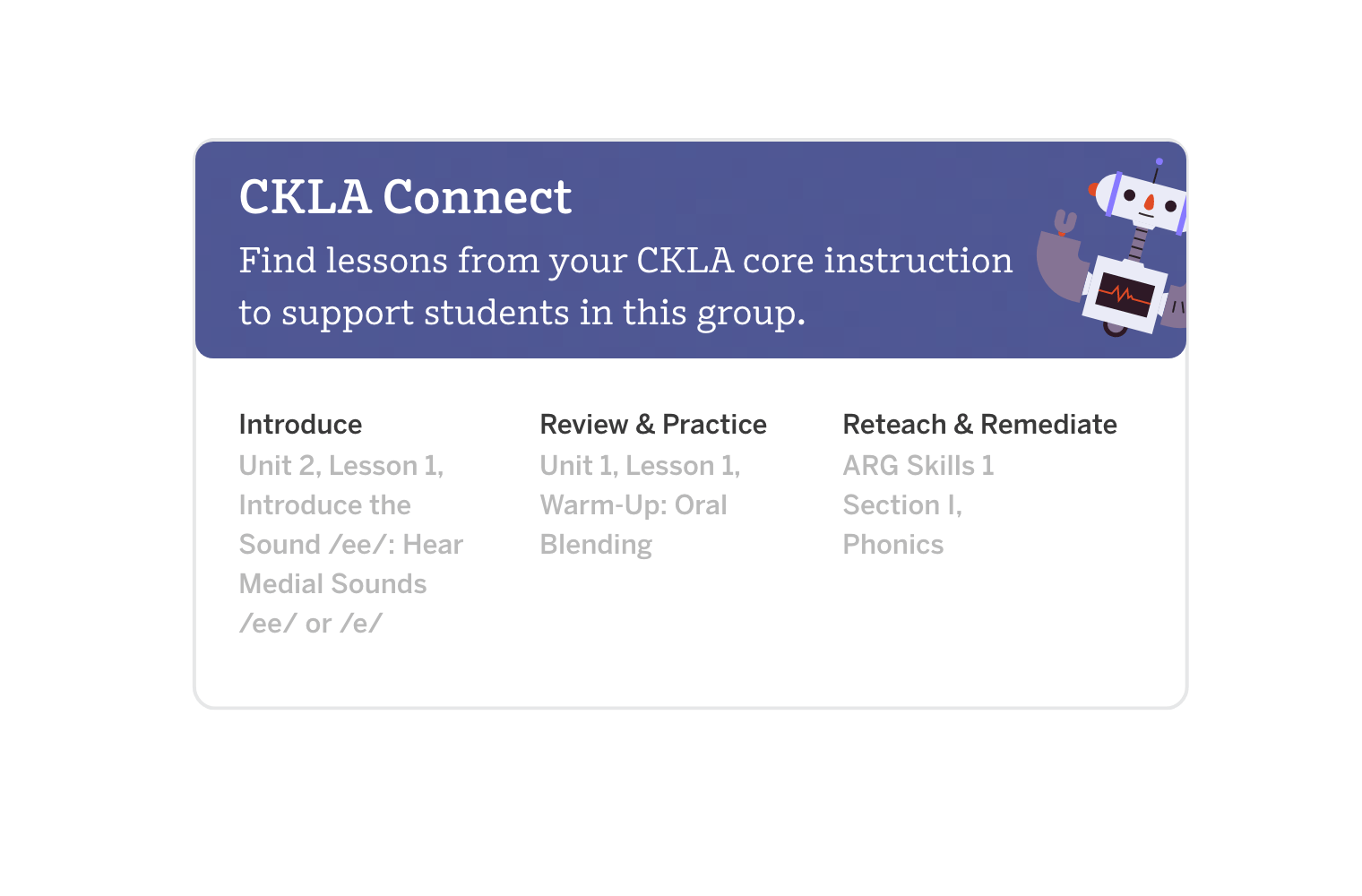
Personalized practice with Boost Reading
mCLASS data seamlessly integrates with Boost Reading to personalize student practice in targeted skill areas. With more than 50 immersive mini-games that build skills in phonics, phonological awareness, vocabulary, and comprehension, Boost Reading provides students with independent practice time they’ll love, while freeing teachers up to provide small-group instruction.
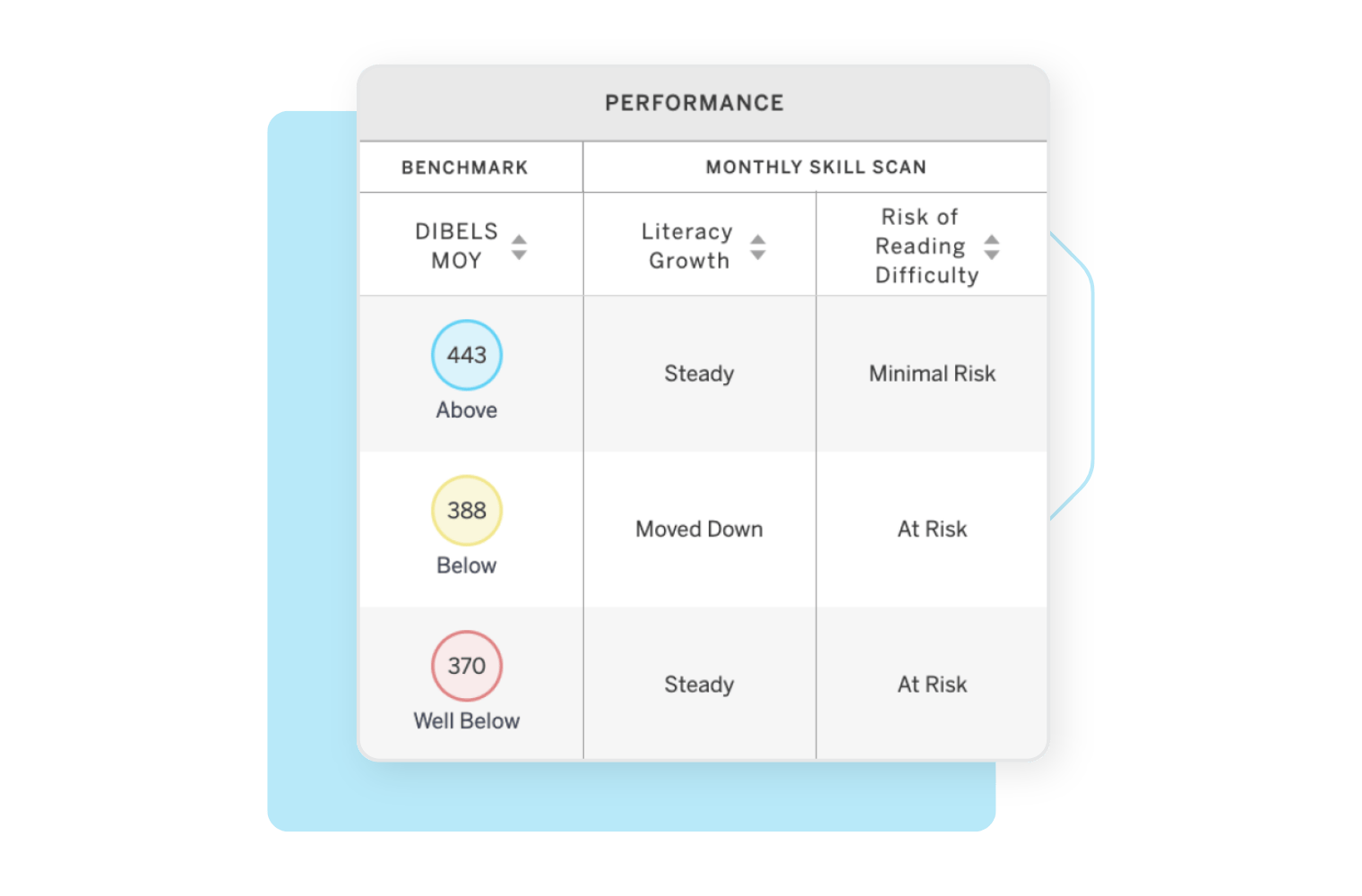
Explore more programs based on the Science of Reading
The programs in our literacy suite are designed to support and complement each other. Learn more about our related programs.